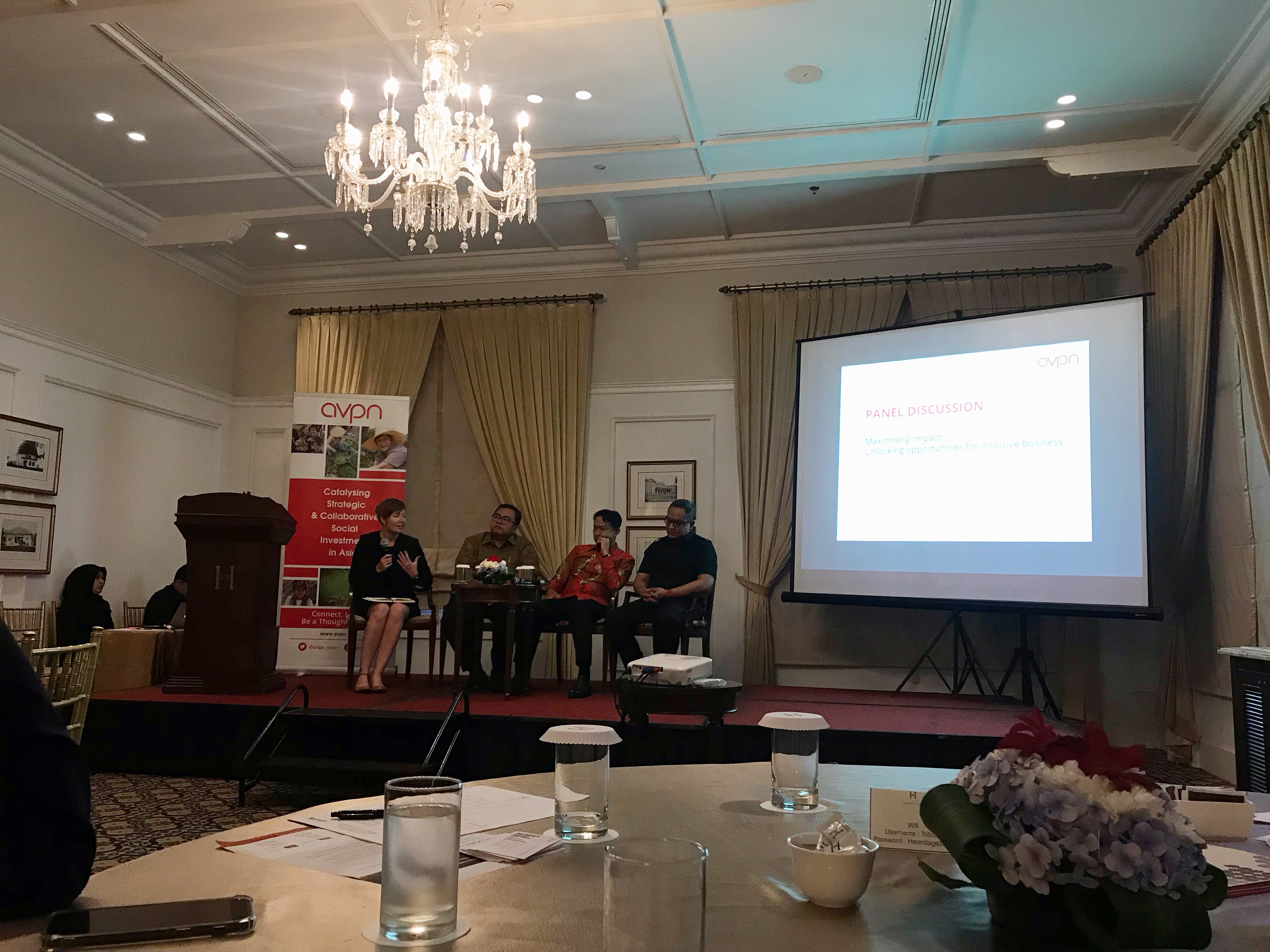To raise awareness about inclusive business, Asian Venture Philanthropy Network (AVPN) arranged a seminar themed Developing Inclusive Business & Impact Investment 2019 on February 12th 2019 at Hermitage Hotel, Jakarta, Indonesia. The seminar last for 2 hours from 5.00pm to 7:00pm. ANGIN Team Sheila Alifia had the opportunity to attend the event.
This seminar brought together several actors whose work contribute to the development of inclusive business in Indonesian ecosystem, all of whom come from different sectors. Keynote speeches were delivered by 4 prominent speakers; they were Fadjar Hutomo (Deputy of Financial Access at BEKRAF, Allison Hollowell (Chief of Strategy at AVPN), Asmat Amin (Managing DIrector of SPS Group), and Regi Wahyu (Founder of HARA Token). Below are several interesting insights Sheila gathered from the event::
- Fadjar Hutomo, Deputy of Financial Access of BEKRAF; he emphasized that creative economy had a big potential to grow immensely which makes it important for development policies in Indonesia.
- Allison Hollowell, Chief of Strategy of AVPN; she introduced the concept of inclusive business and its importance to accommodate people in the ‘Base of Pyramid’ (BoP), which is a term used to describe people living at the poorest socio-economic level. She made a point that “inclusive business” is seen as risky due to the lack of awareness from the business perspective about it.
- Asmat Amin, Managing Director of SPS Group; whose company works in property sector, emphasized that it is really important to make low-income housing product for the BoP because there is a big demand that needs to be fulfilled.
- Regi Wahyu, Founder of HARA Token; he talked about the role of technology in empowering the lives of farmers and improving their income.
There was also a panel session, in which AVPN invited previous keynote speaker Regi Wahyu and Asmat Amin, along with David Hutagalung, Country Director of GE Power Indonesia to discuss the practice of inclusive business. In his talk, David shared about how innovation is required to accommodate the needs of BoP, and he gave an example of a device that his company has developed to help midwives in rural areas do their job. Other speakers also echoed the notion that technology should be there as a problem-solving tool in the lives of BoP rather than being a mere force of disruption. Creating an ecosystem that allows for inclusive businesses that serve the BoP needs collaborative approach from government and the private sector. The session was moderated by Outi Annala as the AVPN Southeast Asia Director.
In conclusion, this seminar emphasized that ‘empowerment’ should be the purpose of inclusive business. Rather than focusing on technological disruption, innovation and technology should be there to strengthen people in BoP socio-economic context where they are prone to become the victims of technological advancement. More perspective about impact investment’s role in developing the ecosystem for inclusive business is needed.





